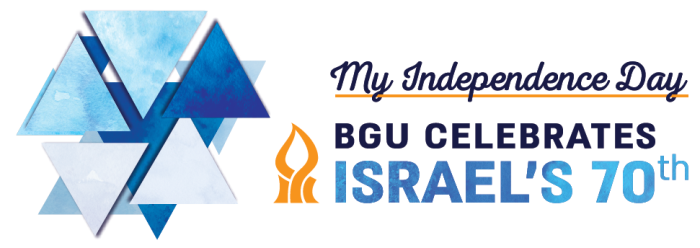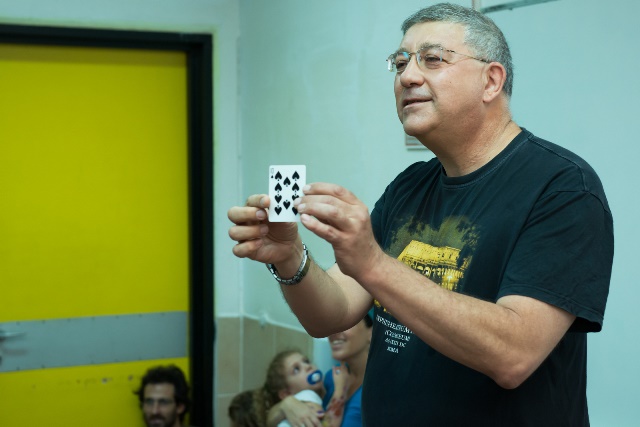
Prof. Yuval Shahar
Department of Software and Information Systems Engineering

My academic career started in the Atuda – the academic military reserve - as a medical student at the Hebrew University in Jerusalem. In the first year we learned a lot of math, physics, chemistry, biology, and also psychology and sociology, in the natural sciences lecture halls on the Mount Scopus Campus; in our second year, at Ein Karem, the highlight was the legendary anatomy course, which took place in autopsy rooms full of the smell of formalin; the third year was a year of clinical biochemistry, pathology, and the physiology of different body systems; and then there were three clinical years in the various departments at Hadassah.
I studied medicine with mixed feelings. From the very beginning, I was conflicted between studying medicine and studying mathematics combined with what was then the Computer Science field in its infancy, so I continued to use every opportunity given to take courses in mathematics and computers during my extremely busy medical school load.
When my class completed its medical studies and certification, we were free to begin our internships as young doctors (I was born in Jerusalem, and in the national placement lottery was sent to Soroka University Medical Center); however, I didn't feel the sense of freedom that many of my former classmates felt. I wasn't sure whether I had completed a significant journey, or hadn't yet started it. I spent six months until the beginning of my internship taking advanced courses in mathematics and computer science at BGU, including an early course regarding what was then a new discipline-Artificial Intelligence; and because of them, I reached an even deeper understanding that I was destined for a different path.
Even after I completed my internship, I still didn't feel the same freedom as most of my classmates from medical school. I began my military service as a doctor in the Golani Infantry Brigade, but I managed to convince the Medical Corps that it would be better for both myself and the army, to appoint me as head of computing and to allow me to take postgraduate studies in computer science at Bar-Ilan University. The gamble paid off for both sides: an information branch was established in the medical corps, which laid the foundations for a series of computer systems, such as the IDF electronic medical record, and management of casualties during emergencies, which are commonplace today.
Even after completing military service, when I was supposedly independent again and free to determine my fate, I felt as though my journey had just begun. I received a scholarship to study at Yale in the US, where I completed a Master's degree in computer science, focusing on artificial intelligence and robotics. I felt as though I was approaching a field that better suited me, but still was not quite there. Only when I moved to Stanford University in California, to a group researching artificial intelligence in medicine, did I know that I had arrived at the right place for me.
After completing a doctorate at Stanford, I stayed on as a senior researcher and full-time faculty member. Apparently, I was supposed to be really independent and free to choose my own path, but still, I couldn't quite focus on what I really wanted to do: to be independent in an academic environment in the U.S. requires quite a bit of money. Luckily for me, in that same year, Stanford University recommended me to the National Institutes of Health as a candidate for a Best Young Researcher in Medicine 5-years career award; and in parallel, my department convinced me to apply for a research grant from the U.S. National Science Foundation (NSF). I received both recommendations due to a new method for analyzing clinical data coming from different sources over time, such as from chronically ill patients, which I had developed as part of my doctoral dissertation. My main intent was to support automated monitoring, diagnosis, and therapy of chronic patients. As it turned out since then, the method had broad implications, even beyond the medical field (e.g., for Homeland Security and for Cyber security-monitoring malware, such as worms and viruses in computers and smart phones, is not unlike monitoring patients…).
Over the course of a week, which was close to Israeli Independence Day, I was lucky to be awarded both grants, with funding for myself and for the research students working with me for the next five years. Only then did I finally feel free – that is, I knew exactly what I wanted to do, and I could actually do it. Indeed, over the next five years, as a faculty member at Stanford, I focused on all of the issues I wanted to explore and which served as the basis for my academic career for many years, from machine-based discovery of new medical knowledge from multiple types of longitudinal clinical data, to the development of systems for automated continuous monitoring and evidence-based management of chronic patients. Then, my wife and I felt that we wanted to raise our children in Israel, so we returned. I came full circle with my return to BGU, a place in which my independence became a reality when I established a multi-disciplinary medical informatics research center.
Today I'm still not sure: Can you ever really be truly free? In a certain sense, can a person who feels the need to know more and more about the world and to understand it, ever have real freedom from his inner duty to himself, to continue to learn and to pass on that knowledge to others? Or perhaps, thanks to my luck and the privilege of being born in a democratic state in the second half of the twentieth century and receiving higher education, I was actually always independent in the most important sense, and didn't understand this?
Well, as the philosopher René Descartes would probably had summed it up, at least I'm free to think these thoughts…
Read about other BGU faculty, alumni and honorees describing significant moments in their lives, linking them to the nation's history >>>>